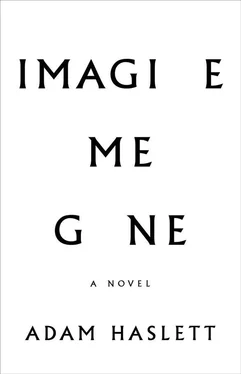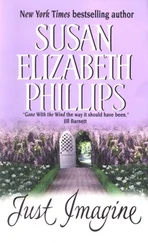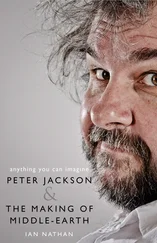I had a job at a library, out in the suburbs. I’d get up early to catch a train to Walton-on-Thames and then the bus along the high street to the red-brick Victorian fortress, where I’d stamp and shelve books all day, and then reverse the journey, riding back into the city on half-empty trains running against the commute.
A few months ago I read Mailer’s Armies of the Night and it reminded me of what I had missed being away from America for most of the sixties, reading about the violence from overseas and hearing about it from my friends, always at a remove. There was one passage that stuck with me. After the posturing speeches followed by the melee at the Pentagon, once they’ve all been arrested and are being driven out to Virginia in buses in the dark, everyone quiet, Mailer writes it’s in motion that Americans remember. Maybe he could have dropped “Americans” and just said “people.” Either way, it struck me as true. If you think of memory not just as looking back but as being aware of time and how it passes and what the passage of it feels like, then there is something about being in motion that does cause it. Through some sleight of mind, physical forward motion makes time seem visible. Which causes me to think that maybe the unnatural speed of cars and jets actually creates nostalgia. Because the simplest way to block out the strangeness of time passing before your eyes is to fix it in place, to edit it down to monuments or potted plants.
Like, I suppose, my rides on those nearly empty trains back from Surrey in the early evenings, already dark in winter, passengers across the car visible in reflection on the glass — a fixed memory I carry now as a stand-in for the more particular instances of wanting badly to see John, to be done with the courtship so we could live together and see each other every night as a matter of course.
Or like all of this coming to me now in the car after I’ve handed out the surprise boxes and earned a lull in the children’s impatience for a while, with the windows down and the salt air rushing in on us. Remembering being at a packed, loud party at the flat with John’s roommates, everyone in ties and dresses, on the evening that the fire engines appeared at the building, and we all had to scurry down the four flights of stairs with our sloshing glasses, John running back up to grab his jacket in case the press appeared to cover the impending blaze — a jest to prevent the good cheer from dissipating on the sidewalk, which worked, keeping the laughter going until we got the all-clear and clambered back up to keep drinking.
It was almost grave the way he kissed me in the beginning. His nerves showed like they never did with friends; with them, words were the only currency that mattered. The contrast seduced me as much as anything. The American boys I’d dated in college and immediately afterward brought their offhand confidence into the bedroom, where it struck the same slightly false note that it did in company. John might have wanted to be that smooth, but with me he couldn’t manage it. Which I’ve always decided to take as a compliment. And then, as if he’d betrayed himself in the dark, he’d up the gallantry the next day, appearing at my door with a picnic basket and a borrowed car and driving us into the countryside, where even if no one was around he still wouldn’t try to touch me, as if it proved something about his character. I fell in love watching him do that. I knew the starkness of the difference between his savoir-faire and his wordless, heavy-breathing grasp in private owed something to his never knowing exactly where he stood with me, because he couldn’t interpret me as easily as he could an Englishwoman. By the same token, I couldn’t help wondering if my being an outsider in his world was what drew him most. Which could make me skeptical of him, parsing his words and deeds for signs that he’d noticed or appreciated something about me other than my foreignness.
It was all part of what kept up a sense of mystery between us at the start. That tension of not knowing but wanting to know. You’d think that after seventeen years of being together and three children and moving together from London to a small town in Massachusetts, this kind of mystery would be dead and gone, the ephemera of early love washed out by practicality. And much of it is. He doesn’t charm me anymore. I see how he charms others, how far his accent alone goes in this country to distract and beguile, but it’s not the kind of effect that lasts in a marriage. And I am certainly no escape for him anymore, not in the simple sense of being a departure from familiarity. We fight. We disagree. He indulges the children to curry favor with them, suspending my bans on this or that, leaving me to stand alone as the enforcer. I resent not knowing when or if he’ll decide the time has come for us to go back to Britain, and I resent that it depends on his work. Not all the time, and not that I can fault him for it entirely, but I’m not quiet about it when it gets to me. Like when I’m rummaging through old furniture in my mother’s garage for dressers or side tables because the ones we bought together after our wedding are sitting in storage an ocean away and he doesn’t want to ship it all here since maybe we’ll be returning soon.
And yet there remains mystery between us. What I want to say is that we still don’t know each other, that we’re still discovering each other, and of course because it’s no longer the beginning it isn’t always, or even mostly, a romantic proposition — the not knowing, the wanting to know — but there is the wanting. Certainly there are times when I think maybe it’s one-sided, that he knows just about all of me that he cares to, and that I’m the one who’s still deciphering, which can be its own source of resentment.
Whatever it is, it’s not about nationalities anymore, or his family or mine. It’s what all that stood in for at the beginning without my realizing it. At least until his episode shortly before our wedding.
That autumn of ’63 after our engagement I could tell something was getting to him at work because whenever we met up he’d be more distracted than usual and have less to say. He was the fastest-talking person I’d ever met, that is before Michael started talking, and in the right mood I could just sit back and listen to him go on about the complacency of Harold Macmillan or the latest news in the Profumo affair, he and his friends interrupting and talking over one another, dashing and clever and well oiled with drink. I’d think of my friends who’d gotten married, junior or senior year, to men just like the ones they’d grown up with, headed now to Wall Street or law school, some of them already with three- and four-year-olds, and I’d think, Thank God! I’m not a doll in the house of my mother’s imaginings. I got out. And far.
But during that October John’s clock began to run more slowly. It wasn’t dramatic at first. He didn’t talk much about his work but I imagined it was some pressure there that was tiring him out, making him less inclined to spend evenings with friends. He just appeared let down, that was all. Harold Macmillan resigning as prime minister was the sort of thing he would usually have been reading and talking about furiously but he showed barely any interest. It was the evening Kennedy was shot — evening in Britain — that I thought to myself something must be the matter with him because when I appeared at his flat in tears he hugged me and sat me down on the couch and tried to calm me, yet it didn’t seem to have reached him at all. I didn’t expect him to cry — it wasn’t his president — but it was as if I’d told him a distant uncle of mine had expired, obliging him to pat me on the shoulder. It was unnatural.
Three weeks later I sailed back to New York for Christmas. I stayed just under a month. We wrote several times a week. Daily bits and pieces but lots of fond things, too. There were some particularly ardent ones from him — as strong about how he loved me as he’d ever said or written before.
Читать дальше












